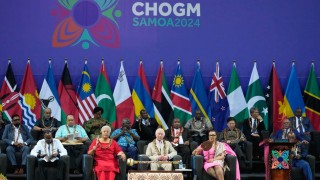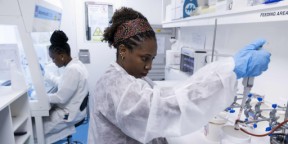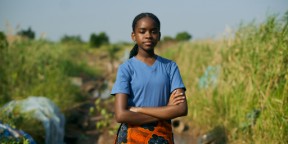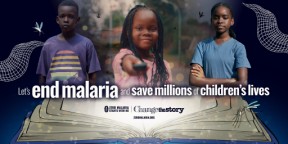The Commonwealth recommits to ending malaria
We're pleased to see the inclusion of the commitment to increased global and national efforts to end the malaria epidemic in the 2024 Commonwealth Heads of Government Communique, in line with the 2018 and 2022 Commonwealth commitments on malaria.
The support referenced for both Gavi, the Vaccine Alliance and the Global Fund to Fight AIDS, TB and Malaria will be integral to their successful replenishments in 2025.
The Commonwealth’s longstanding recognition of its role fighting malaria within its nations has undoubtedly helped drive progress and save lives. However, with the majority of Commonwealth nations affected by malaria off track to meet the Commonwealth malaria commitment, increased investment will be required.
Commonwealth nations, like many other affected countries, are facing a perfect storm of threats to progress on malaria. These include climate change and the extreme weather events it brings such as Cyclone Freddy which hit both Mozambique and Malawi last year and will have driven up malaria cases.
Now is the time to be doubling down on our efforts to end malaria throughout the Commonwealth, working in partnership to build a more resilient, prosperous, and secure common future for all citizens across the family of nations.
Samoa Communique of the Commonwealth Heads of Government Meeting
Paragraph 11
Heads welcomed the outcomes of the 2024 Commonwealth Health Ministers Meeting and reiterated their commitment to achieving the health-related SDGs by building post-COVID19 sustainable, resilient and inclusive health systems supported by sustainable financing, digital solutions, and by developing institutional capacity. Heads recommitted to the implementation of the World Health Organisation (WHO) Global Code of Practice on the International Recruitment of Health Personnel and to investing in the health workforce. Heads committed to working to achieve Universal Health Coverage by 2030, with primary health care at its core, and to improving access to comprehensive sexual and reproductive health and reproductive rights which are critical to achieving gender equality and the highest attainable standard of health for all. Heads resolved to continue to strengthen pandemic prevention preparedness and response for disease outbreaks, including through use of a One Health approach. Heads urged for increased global and national efforts to tackle non-communicable diseases and antimicrobial resistance; recommitted to efforts to eliminate all forms of cancer including cervical cancer; to end the epidemics of acquired immunodeficiency syndrome (AIDS), tuberculosis (TB), malaria and neglected tropical diseases (NTDs) by 2030; to eradicate polio, and to promote and protect mental health. Heads encouraged the increased availability of adaptation finance for health; the building of climate resilient health systems in nations most vulnerable to climate change, including SIDS. Heads also recommitted to strengthening the global health architecture, and welcomed the extension of the mandate of the intergovernmental negotiating body to complete its work as soon as possible and to submit its outcome for consideration by the 78th World Health Assembly (WHA) in 2025, or earlier if possible in 2024, by a special session of the WHA. They also committed to working collectively, impartially and based on mutual agreement with the global community to support Gavi, the Vaccine Alliance and the Global Fund to Fight AIDS, TB and Malaria with inter alia their upcoming replenishments. Heads welcomed the launch of the cross-regional Health Development Partnership for Africa and the Caribbean (HeDPAC) to strengthen South-South cooperation, to develop the health workforce, and to enable local medical products manufacturing in the Global South.






